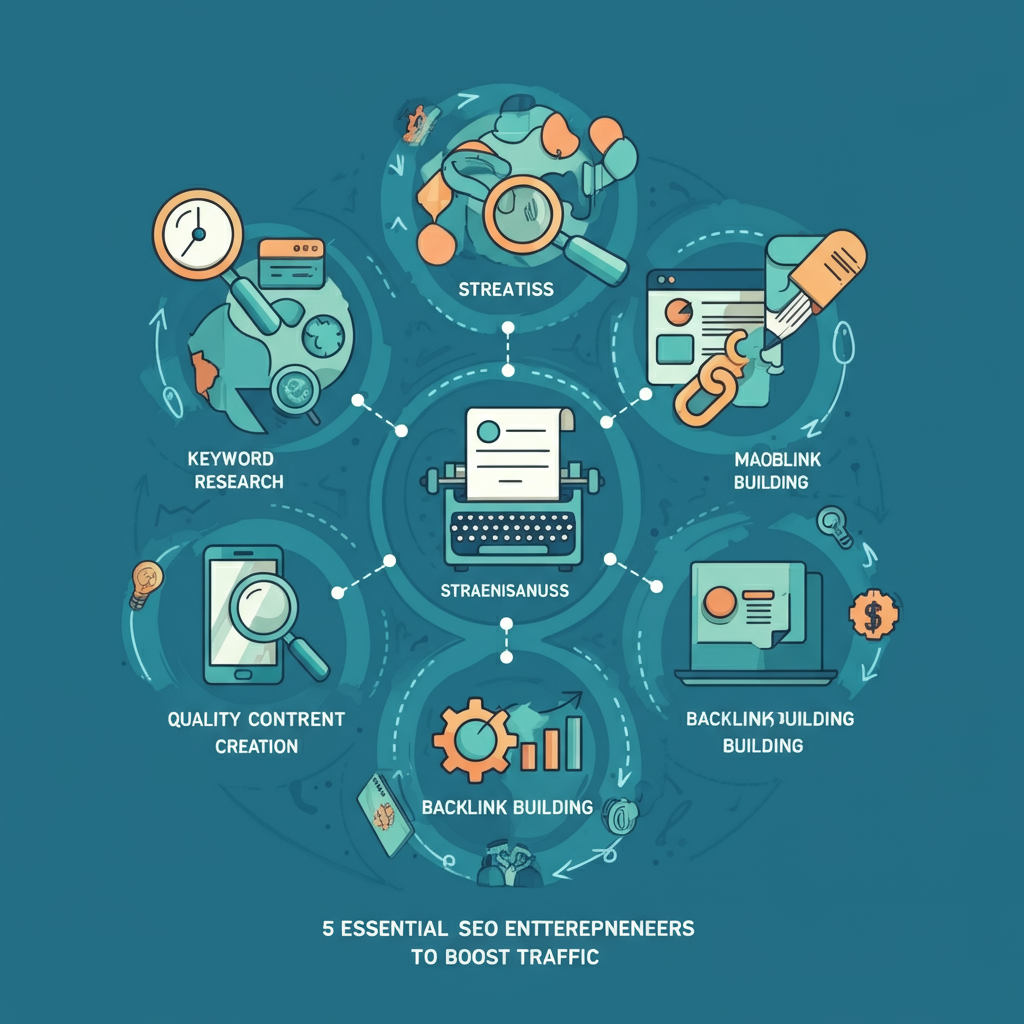Search Engine Optimization (SEO) plays a crucial role in the digital landscape. It’s the driving force behind online visibility and the traffic that businesses need to thrive. But what exactly is SEO, and why is it so important for digital marketing? Whether you’re a business owner, marketing professional, or content creator, understanding SEO can transform your online presence.
This guide dives deep into SEO’s significance, tools, and its real-world applications, offering actionable insights to help you succeed. By the end, you’ll have a clear understanding of why SEO is indispensable for digital marketing and how to apply it effectively.
Understanding SEO

SEO, or Search Engine Optimization, is the process of improving a website’s visibility on search engine results pages (SERPs). When you search for something on Google, the results you see at the top didn’t get there by chance. Instead, they are carefully optimized to match keywords and search intent, ensuring they stand out from millions of websites.
SEO isn’t just about ranking higher; it’s about connecting with your target audience by offering relevant, valuable content. It’s a blend of technical adjustments, content optimization, and user experience improvements. Think of it as the engine that powers your online presence, ensuring that your content is seen, your message is heard, and your goals are achieved.
Why Does SEO Matter?
SEO matters because most online experiences begin with a search engine. Google processes billions of searches daily, and appearing on the first page of results dramatically increases your chances of engagement. Without SEO, your website risks getting lost in the vast digital space.
Importance of SEO for Businesses
Ignoring SEO is no longer an option for businesses that want to thrive in a competitive digital environment. Here’s why SEO is crucial for success:
1. Enhancing Online Visibility
SEO ensures that your website is found by those actively searching for your products or services. This is the backbone of digital marketing, driving organic traffic to your website without the recurring costs of paid ads.
2. Building Credibility and Trust
Websites that rank higher on Google are perceived as trustworthy and credible. SEO helps establish this trust through optimized content, secure browsing, and authoritative backlinks.
3. Increasing Website Traffic
An optimized website attracts high-quality traffic, ensuring you connect with visitors likely to convert into leads or customers.
4. Cost-Effective Marketing Strategy
Unlike pay-per-click campaigns, SEO provides lasting results. Once your website ranks high, maintaining that position requires less investment compared to acquiring new traffic repeatedly with paid strategies.
5. Better User Experience (UX)
SEO focuses on creating a seamless, enjoyable user experience. Faster load times, mobile-friendly designs, and intuitive navigation are all part of a strong SEO strategy that benefits users and search engines alike.
Real-World Example
Consider a local bakery launching its website. By using SEO to target keywords like “fresh pastries near me” or “best bakery in [city],” the business ensures it attracts customers searching for its specific offerings. That’s the power of SEO at work.
SEO Tools You Need to Know

Understanding the importance of SEO is one thing, but implementing it requires the right tools. Here are some essential SEO tools to simplify and supercharge your strategy:
- Google Analytics – Monitor user behavior on your site.
- SEMrush – Discover keyword opportunities, competitive analysis, and backlink audits.
- Ahrefs – Deep-dive into backlinks, keywords, and site audits.
- Yoast SEO (for WordPress) – Optimize on-page SEO effortlessly.
- Google Search Console – Track website indexing and performance on SERPs.
These tools offer valuable insights, helping you craft a more data-driven, targeted SEO strategy.
Local SEO for Businesses
When it comes to targeting customers in specific regions, Local SEO is indispensable. Even if you’re a global brand, your local audience matters.
What is Local SEO?
Local SEO focuses on optimizing your presence for location-specific searches, like “plumber near me” or “coffee shop in [city].” It uses strategies to ensure your business appears in local search results, often in Google Maps or in the Local Pack.
Why is Local SEO Important?
According to research, 46% of all searches on Google are seeking local information. Local SEO ensures your business is part of these high-intent searches, driving foot traffic, calls, and local sales.
Tips for Local SEO
- Claim Your Google My Business Listing to gain visibility in local searches.
- Use location-specific keywords in your content.
- Encourage customers to leave online reviews to build trust and credibility.
- Optimize your website for mobile users since most local searches happen on smartphones.
Blending SEO and Digital Marketing
SEO doesn’t operate in isolation; it’s deeply intertwined with all aspects of digital marketing. Here’s how they complement each other:
1. Content Marketing
Content marketing relies on SEO to ensure that blogs, videos, or infographics reach the intended audience. Incorporating keywords naturally and offering valuable insights are key to ranking content higher.
2. Pay-Per-Click (PPC) Advertising
While PPC strategies aim for instant visibility, pairing them with SEO creates a powerful combination. SEO attracts long-term organic traffic, while PPC complements it with quick results.
3. Social Media Efforts
SEO and social media are interconnected. While social media doesn’t directly affect rankings, it amplifies SEO efforts by driving traffic to your site and boosting content visibility.
4. User Experience Improvements
SEO strategies often overlap with UX practices. For instance, Google values sites with fast load times, mobile optimization, and easy navigation. Improving UX not only satisfies your audience but also boosts your SEO efforts.
Real-World Synergy
Imagine launching a new eco-friendly product. Use SEO to create content optimized for “sustainable products” while running targeted social media ads to amplify its reach. Together, these strategies build a strong digital presence for your product.
Frequently Asked Questions About SEO
What is the difference between organic and paid search?
Organic search refers to unpaid search results achieved through SEO efforts, whereas paid search uses ads to gain visibility on SERPs.
How long does it take to see results from SEO?
Depending on your strategy, SEO may take 3-6 months to yield noticeable results. It requires long-term commitment but provides lasting benefits.
Can I do SEO without professional help?
Yes! With the right tools and research, you can handle basic SEO tasks yourself. However, professional services can offer advanced strategies and better results.
What are keywords and why are they important?
Keywords are phrases that users type into search engines. They are crucial for aligning your content with user intent and driving relevant traffic to your site.
Take Your SEO Strategy to New Heights
SEO is indispensable to any successful digital marketing strategy. From increasing your online visibility to building trust, and from driving organic traffic to boosting conversions, its impact is unparalleled. Whether you’re a business owner looking to grow or a professional seeking to sharpen your skills, incorporating SEO into your digital marketing efforts is the way forward.
Start today by exploring the tools mentioned above and focusing on actionable strategies. Remember, the road to SEO success is a marathon, not a sprint—but the rewards are worth the effort


